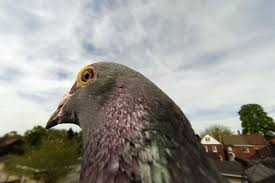Pigeon racing is a fascinating and competitive sport that has been practiced for centuries. It involves training homing pigeons to race back to their lofts (pigeon houses) from a designated release point. The sport is popular in many countries, including Belgium, the Netherlands, the UK, and the US, with enthusiasts investing significant time and money into breeding, training, and racing high-performance pigeons.
If you’re passionate about pigeons and considering turning this hobby into a business, this guide will walk you through the essential steps to start a successful pigeon racing business.
Table of Contents
1. Understanding the Pigeon Racing Industry
Before diving into the business, it’s crucial to understand how pigeon racing works, its market potential, and the key players involved.
How Pigeon Racing Works
- Pigeons are trained to fly back to their home loft from various distances (ranging from 100 to 1,000+ kilometers).
- Races are timed, and the bird with the highest average speed (measured in meters per minute) wins.
- Modern races use electronic timing systems (RFID bands) to record arrival times accurately.
Market Potential
- Pigeon racing has a dedicated following, with high-value pigeons sometimes selling for millions of dollars.
- Revenue streams include:
- Selling racing pigeons
- Breeding and selling champion bloodlines
- Entry fees for races
- Sponsorships and partnerships
- Selling pigeon supplies (feed, supplements, loft equipment)
Key Industry Players
- Breeders & Trainers – Specialize in raising and conditioning pigeons for races.
- Racing Clubs & Federations – Organize races and maintain standards.
- Auction Houses – Sell high-value pigeons (e.g., PIPA, Gurnay Pigeons).
- Equipment Suppliers – Provide lofts, feed, health products, and tracking systems.
2. Legal and Regulatory Considerations
Before setting up your pigeon racing business, ensure compliance with local laws and regulations:
Business Registration
- Choose a business structure (sole proprietorship, LLC, or corporation).
- Register your business name and obtain necessary permits.
Animal Welfare Laws
- Ensure humane treatment of pigeons (housing, feeding, and training standards).
- Some regions require animal activity licenses for keeping racing pigeons.
Racing Regulations
- Join a recognized pigeon racing federation (e.g., American Racing Pigeon Union (AU), Royal Pigeon Racing Association (RPRA) in the UK).
- Follow race rules regarding bird registration, health checks, and fair competition.
3. Setting Up Your Pigeon Loft
A well-designed loft is critical for raising healthy and high-performing pigeons.
Location & Design
- Space Requirements: At least 10-15 square feet per bird.
- Ventilation: Proper airflow prevents respiratory diseases.
- Security: Protect from predators (rats, cats, hawks) with wire mesh and secure doors.
- Sunlight Exposure: Natural light helps maintain pigeon health.
Loft Types
- Traditional Wooden Lofts – Durable but require maintenance.
- Metal or Plastic Lofts – Easier to clean, resistant to mites.
- Mobile Lofts – Used for training (transportable for conditioning).
Essential Loft Equipment
- Perches and nesting boxes
- Feeders and water dispensers
- Electronic timing systems (for race tracking)
- Cleaning tools (disinfectants, scrapers)
4. Selecting and Breeding Racing Pigeons
The success of your business depends on the quality of your pigeons.
Choosing the Right Breed
Popular racing pigeon breeds include:
- Sprint Racers (fast over short distances):
- Smerle
- Tippler
- Middle-Distance Racers (300-600 km):
- Janssen
- Van Loon
- Long-Distance Racers (600+ km):
- Koopman
- Busschaert
Where to Buy Pigeons
- Reputable Breeders – Look for champions with proven bloodlines.
- Auctions – Online platforms like Pigeon Auction House (PIPA) sell elite birds.
- Racing Clubs – Network with experienced fanciers for recommendations.
Breeding Strategies
- Line Breeding: Mating closely related birds to strengthen desirable traits.
- Outcrossing: Introducing unrelated pigeons to enhance genetic diversity.
- Record Keeping: Track pedigrees, performance, and health history.
5. Training and Conditioning Pigeons
Training is essential to develop a pigeon’s homing instinct and stamina.
Basic Training (Young Birds – 6-8 Weeks Old)
- Loft Familiarization: Let pigeons explore their home loft.
- Short Flights (1-5 km): Gradually increase distance.
- Group Training: Release pigeons together to build flock mentality.
Advanced Training (Older Birds – 4+ Months)
- Distance Training (50-200 km): Use a pigeon transporter for releases.
- Weather Conditioning: Train in different weather to build resilience.
- Race Simulation: Mimic race conditions (timed releases, feeding schedules).
Nutrition & Health Management
- High-Protein Diet (16-18% protein for racing season).
- Supplements (electrolytes, vitamins, probiotics).
- Regular Vet Checks (deworming, vaccinations for common diseases like PMV).
6. Entering Races and Generating Revenue
Once your pigeons are race-ready, you can start competing and monetizing your business.
Joining Racing Clubs
- Register with a local or national pigeon racing club.
- Pay membership and race entry fees (varies by competition level).
Race Participation Strategies
- Start with short-distance races to build confidence.
- Gradually enter middle and long-distance competitions.
- Use strategic rest periods to avoid overtraining.
Monetization Strategies
- Selling Racing Pigeons
- Sell young birds (50−50−500 each).
- Elite racers or breeding pairs can fetch 1,000−1,000−50,000+.
- Breeding & Selling Eggs
- Champion bloodline eggs can sell for 100−100−1,000 each.
- Sponsorships & Advertising
- Partner with feed brands, loft suppliers, or betting platforms.
- Hosting Auctions & Events
- Sell retired racers or organize training workshops.
7. Marketing Your Pigeon Racing Business
To attract buyers and sponsors, you need a strong marketing strategy.
Online Presence
- Website & Blog: Share training tips, race results, and pigeon sales.
- Social Media (Facebook, Instagram, YouTube): Post training videos and success stories.
- Pigeon Forums & Marketplaces: Engage with communities like Pigeon Talk, Pigeon Racing Forum.
Offline Marketing
- Attend pigeon shows and auctions.
- Network with local racing clubs and breeders.
- Advertise in pigeon racing magazines.
8. Scaling Your Business
Once established, consider expanding:
- Increase Breeding Stock – Invest in more champion bloodlines.
- Automate Loft Operations – Use smart feeders, automated doors.
- Export Pigeons – Sell internationally (high demand in Asia and Europe).
- Offer Training Services – Train pigeons for other racers.

